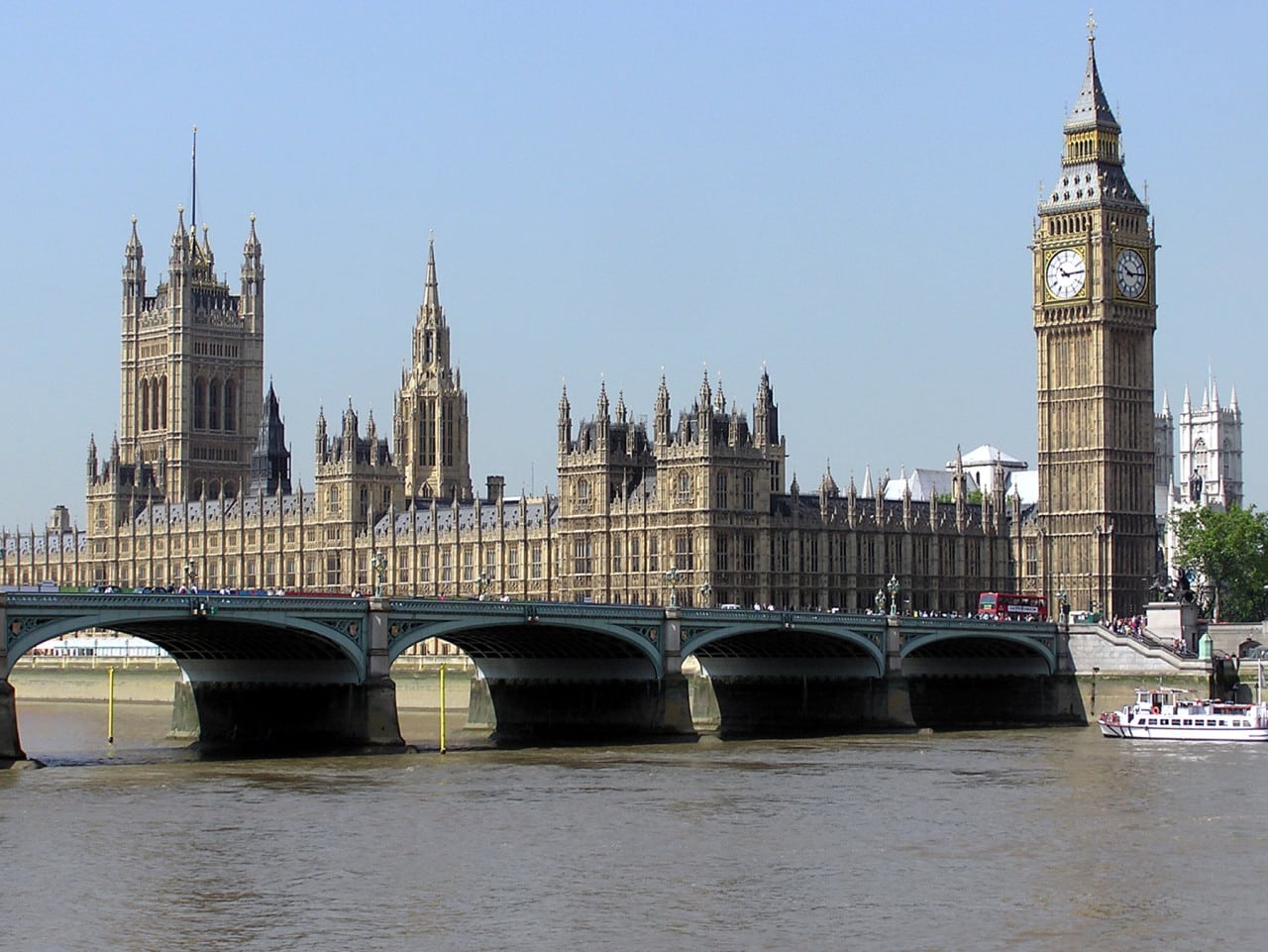
The United Kingdom will strive to cut its carbon emissions 57 percent from 1990 levels by 2030, the Department of Energy and Climate Change announced Thursday in its fifth carbon budget. “This Order sets the carbon budget for the 2028–2032 budgetary period (1,725 million tonnes of carbon dioxide equivalent). Carbon budgets set a cap on the maximum level of the net UK carbon account for each five-year budgetary period,” the DECC explained in its order.
The last four carbon budgets set goals of a 23 percent reduction by 2012, 29 percent reduction by 2017, 35 percent reduction by 2020, and 50 percent reduction by 2025. The carbon budgets are a requirement of the U.K. Climate Change Act, which also sets a long-term goal of cutting emissions 80 percent by 2050.
Thursday’s announcement is in line with recommendations made by the advisory Committee on Climate Change in November. “I warmly welcome the Government’s acceptance of the CCC’s advice on the fifth carbon budget. Amidst many competing demands it is to their credit that they continue to prioritise efforts to tackle climate change in the UK and internationally,” committee Chairman John Gummer said in a release.
While happy to have its advice heeded by the DECC, the committee warned Parliament on Thursday that without new policies, the target set in the fifth carbon budget will not be met. In its 2016 Progress Report to Parliament, the pane noted that progress toward the goals in the Climate Change Act has been largely limited to one sector of the economy. “In 2015, emissions fell by 3 [percent] and they are now 38 [percent] below 1990 levels. Much of the progress, however, has been in the power sector. To meet emission reduction targets going forward, reductions will need to be broadly based, across all sectors of the economy,” according to the report.
The CCC report notes several areas in which either new policy will be needed or existing policy will need to be strengthened. For example, the report calls for the development of a strategic approach to carbon capture and storage deployment in the U.K.; contingency plans for delay or cancellation of planned projects such as new nuclear plants; and a strategic, funded approach to industrial carbon capture and storage.
“[The Government] recognises that current policies are insufficient to meet the requirements of the fourth and fifth carbon budgets and keep us on a cost-effective path to the 2050 target. It has committed to producing its plans for how these budgets will be met before the end of the year,” the report says.
The nation’s recent decision to leave the European Union seems to have little effect on the carbon budget process, which is not entirely surprising as the reduction mandate is part of U.K., not EU, law.
“The recent vote to leave the European Union does not change the UK’s requirement to reduce emissions nor the required levels of reduction, which were legislated by the UK Parliament. However, it could have an impact on how the UK carbon budgets are met,” the report explains. “Insofar as the Leave vote leads to a removal or weakening of policies that derive from the EU (e.g. new car emissions standards, the EU Emissions Trading System, Directives on waste and F-gases), UK policies will have to be developed that meet the UK commitments.”